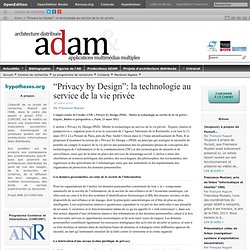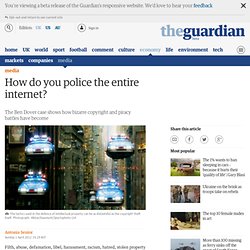

If You Have a Smartphone, Anyone Can Now Track Your Every Move. Location services company Navizon has a new system, called Navizon I.T.S., that could allow tracking of visitors in malls, museums, offices, factories, secured areas and just about any other indoor space.

It could be used to examine patterns of foot traffic in retail spaces, assure that a museum is empty of visitors at closing time, or even to pinpoint the location of any individual registered with the system. But let’s set all that aside for a minute while we freak out about the privacy implications. Most of us leave Wi-Fi on by default, in part because our phones chastise us when we don’t. (Triangulation by Wi-Fi hotspots is important for making location services more accurate.) But you probably didn’t realize that, using proprietary new “nodes” from Navizon, any device with an active Wi-Fi radio can be seen by a system like Navizon’s.
And here’s a website set up by Navizon to anonymously log the devices of pedestrians who walk by its offices in Miami Beach, FL. Quand le travail empiète sur la vie privée. “Privacy by Design”: la technologie au service de la vie privée. Compte-rendu de l’atelier ANR « Privacy by Design (PbD) .

Mettre la technologie au service de la vie privée : Enjeux, limites et perspectives », Paris, 23 mars 2012. How do you police the entire internet? Filth, abuse, defamation, libel, harassment, racism, hatred, stolen property – how we deal with the dross is the big question of the digital age, and one that we are no closer to answering.

The past month alone has thrown up three court cases that highlight the seemingly impossible contradictions of policing the internet. The first was the sentencing of Liam Stacey to 56 days in jail, as a result of his drunken, racist tweets promted by Fabrice Muamba's collapse. The judge explicitly said the custodial sentence was designed to "reflect public outrage" at his crime. He was not jailed, then, just because he broke the law, but because his tweet stood out and made people cross.
The internet is awash with racist opinions of all hues – but when are prosecutions worth pursuing? Similar forces are at play when internet users infringe owners of copyright. Anyway, neither libel nor copyright theft is a new phenomenon. But enforcement is the problem. So other strategies are emerging.